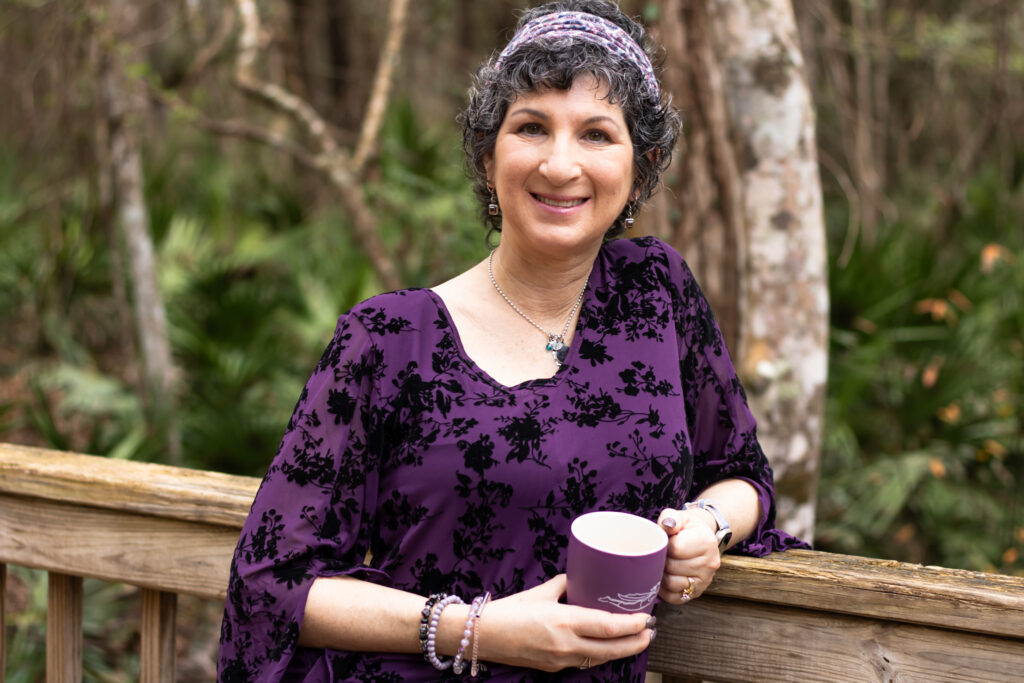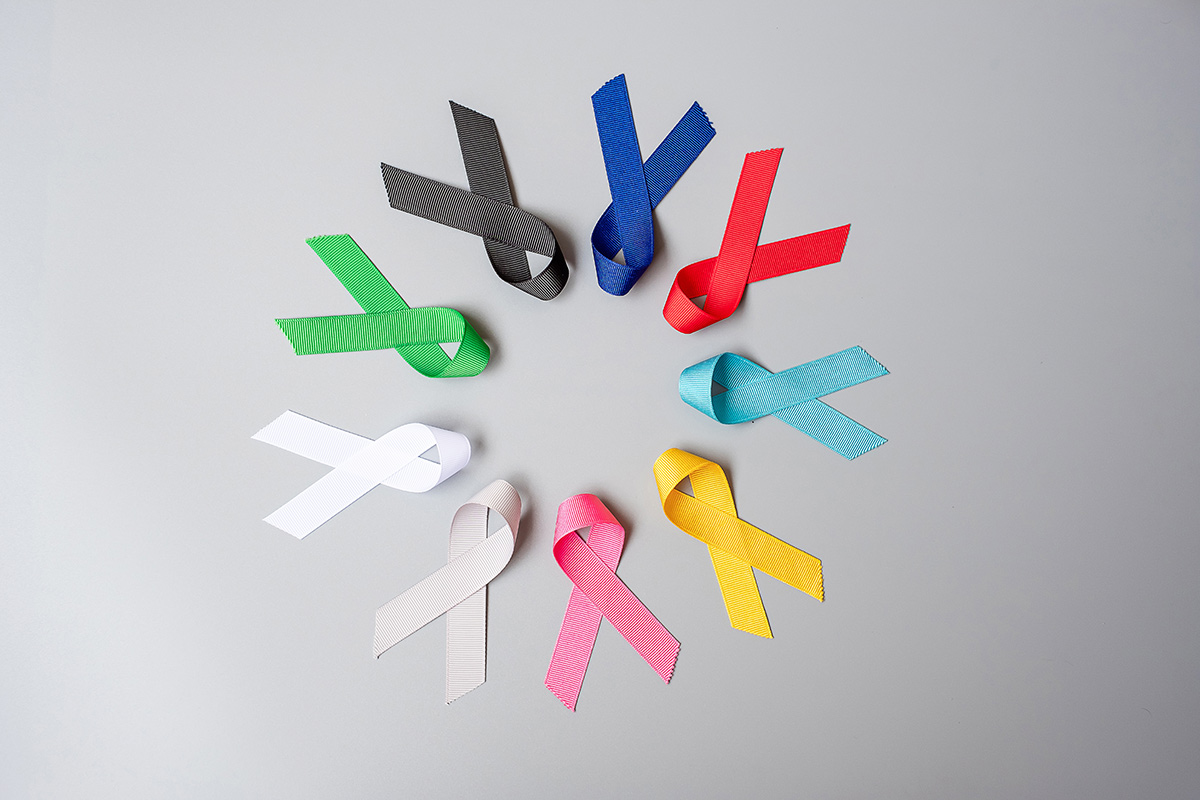February is National Cancer Prevention Month. This annual observance reminds us to reflect on our health, make informed choices, and adopt a holistic approach to our overall well-being. As a psychotherapist, my perspective extends beyond the conventional boundaries of mental health, recognizing the intricate interplay between our psychological and physical well-being. This article offers a summary review of various aspects of cancer prevention, emphasizing proactive self-care while steering clear of the unproductive blame game.
The Mind-Body Connection:
Understanding the profound connection between the mind and body is essential when navigating the realm of cancer prevention. My experiences as a psychotherapist consistently underscore the impact of stress, anxiety, and unresolved emotional issues on physical health. Cultivating a positive mindset and developing effective stress management techniques can significantly increase the body’s resilience in the face of potential health challenges.
Proactive Lifestyle Choices:
National Cancer Prevention Month calls for a proactive approach to our well-being, and this begins with mindful lifestyle choices. Regular exercise, a balanced diet rich in fruits and vegetables, and maintaining a healthy weight are foundational pillars of cancer prevention. I advocate for the integration of these habits into our daily lives, recognizing their dual impact on mental and physical health.
Mindful Nutrition:

Nutrition is often highlighted as one of the largest contributors to disease. Consequently, nutritional choices can play a significant role in cancer prevention. As a mental health therapist specializing in cancer, I emphasize a mindful approach to eating. Choosing a diet that is abundant in antioxidants, vitamins, and minerals can fortify the body’s defenses against potential threats. However, it is equally important to approach dietary changes with self-compassion, fostering a positive relationship with food that aligns with our mental and emotional well-being. Restrictive fad diets are often unsustainable, which can lead to feelings of shame and guilt. I recommend choosing a “healthier” diet which can be improved over time. Here is a list of dietary recommendations to be considered:
- Colorful Fruits and Vegetables:
- Consume a variety of fruits and vegetables, aiming for a rainbow of colors.
- Rich in antioxidants, vitamins, and minerals that contribute to overall health.
- Whole Grains:
- Choose whole grains such as brown rice, quinoa, and whole wheat over refined grains.
- Whole grains provide fiber, essential for digestive health and maintaining a healthy weight.
- Lean Proteins:
- Choose lean protein sources like poultry, fish, beans, and legumes.
- Protein is crucial for cell repair and maintenance.
- Healthy Fats:
- Sources of healthy fats include avocados, nuts, seeds, and olive oil.
- Omega-3 fatty acids, found in fatty fish, flaxseeds, and walnuts, have anti-inflammatory properties.
- Limit Red and Processed Meats:
- Limit the consumption of red and processed meats, as they may increase the risk of certain cancers.
- Choose leaner protein alternatives and incorporate plant-based protein options.
- Moderate Dairy Consumption:
- Choose low-fat or fat-free dairy products.
- Dairy is a source of calcium, which is important for bone health.
- Hydration:
- Stay adequately hydrated by drinking plenty of water throughout the day.
- Proper hydration supports overall health and aids in various bodily functions.
- Limit Sugary Foods and Beverages:
- Reduce the intake of sugary snacks, sodas, and sweets.
- Use natural sweeteners, like honey or maple syrup, in moderation.
- Portion Control:
- Practice portion control to avoid overeating.
- Maintain a healthy weight, as excess body weight is linked to an increased risk of certain cancers.
- Herbs and Spices:
- Incorporate herbs and spices like turmeric, garlic, and ginger into your meals.
- Some herbs and spices have anti-inflammatory and antioxidant properties.
- Limit Alcohol Consumption:
- If you choose to drink alcohol, do so in moderation.
- Excessive alcohol consumption is associated with an increased risk of certain cancers.
- Balanced and Varied Diet:
- Strive for a balanced diet that includes a mix of different food groups.
- Variety ensures a broad spectrum of nutrients, promoting overall health.
Empowerment through Knowledge:
Knowledge is a powerful tool in the realm of cancer prevention. As a mental health therapist, I believe in equipping individuals with the tools to obtain information needed to make informed decisions about their health. Understanding risk factors, engaging in regular health check-ups, and participating in cancer screenings are crucial components of a proactive approach to well-being.
Understanding Risk Factors:
Cancer risk factors are diverse and multifaceted. While some are beyond our control, such as genetic predispositions, many can be influenced by lifestyle choices and environmental factors. As a psychotherapist, I emphasize the importance of self-awareness in identifying and mitigating controllable risk factors. Adopting healthier habits can significantly reduce the likelihood of developing certain types of cancer, contributing to a more robust defense against this formidable adversary.
Cancer Screenings:
Participating in recommended cancer screenings is an integral part of proactive healthcare. Early detection significantly improves the chances of successful treatment. From mammograms and Pap smears to colonoscopies, these screenings are tailored to specific demographics and risk profiles. As a mental health therapist, I validate the emotional aspects of undergoing screenings, and I encourage individuals to approach them as empowering acts of self-care. By prioritizing screenings, we take charge of our health narrative, embracing a preventative mindset. The following are common cancer screenings recommended for various demographics:
- Mammograms:
- Recommended for women, typically starting at age 40 or earlier based on family history.
- Regular mammograms aid in the early detection of breast cancer.
- Pap Smears:
- Crucial for cervical cancer screening in individuals with a cervix.
- Generally recommended every three years for those aged 21 to 65.
- Colonoscopies:
- Vital for colorectal cancer screening, especially for those aged 50 and older.
- Regular screenings can detect precancerous polyps and early-stage colorectal cancer.
- Prostate-Specific Antigen (PSA) Test:
- Commonly recommended for men, usually starting at age 50.
- Measures PSA levels in the blood, aiding in the detection of prostate cancer.
- Skin Cancer Screenings:
- Regular skin examinations, self-checks, and professional screenings help detect skin cancers like melanoma.
- Lung Cancer Screening:
- Typically recommended for individuals with a history of heavy smoking.
- Involves low-dose computed tomography (LDCT) scans to detect lung cancer in its early stages.
- Ovarian Cancer Screening:
- No standard screening for the general population.
- Transvaginal ultrasound and CA-125 blood tests may be considered for those at high risk.
- Testicular Cancer Self-Exams:
- Encouraged for men, especially those between 15 and 35 years old.
- Regular self-exams can aid in the early detection of testicular cancer.
Holistic Approaches to Stress Management:
Stress, often regarded as an inevitable part of modern life, plays a profound role in our overall health. As a therapist, I witness the intricate dance between stress and well-being in my clients. Chronic stress has been linked to various health issues, including an increased risk of cancer. Thus, cultivating effective stress management techniques is paramount in our journey toward prevention.

Mindfulness and Meditation:
Mindfulness practices, such as meditation, have gained widespread recognition for their positive impact on mental and physical health. These techniques promote relaxation, reduce stress hormones, and enhance overall well-being. I often recommend mindfulness practices to my clients as valuable tools in their mental health toolkit. Incorporating mindfulness into daily routines can be a transformative step towards reducing stress.
Exercise as a Stress-Reliever:
Physical activity is not only crucial for maintaining a healthy weight but also serves as a powerful stress-reliever. Engaging in regular exercise releases endorphins, the body’s natural mood elevators, promoting a sense of well-being. From brisk walks to more vigorous workouts, finding an exercise routine that suits individual preferences and abilities can be a cornerstone of stress management.
Supporting Emotional Well-Being:
Emotional well-being is an often-underestimated aspect of cancer prevention. As a psychotherapist, I emphasize the importance of fostering resilience and coping mechanisms to navigate life’s challenges. Building a strong emotional foundation contributes to overall well-being and can positively impact the body’s ability to resist disease. Exploring therapeutic interventions, such as counseling or psychotherapy, can be instrumental in developing effective coping strategies and enhancing emotional resilience.
Building Resilience:
Resilience, the ability to bounce back from adversity, is a quality that can be nurtured and strengthened. As a therapist, I guide individuals in building resilience through a combination of self-awareness, positive coping strategies, and a supportive social network. Resilience not only aids in managing stress but also fortifies the mind and body against potential health threats, including cancer. Cultivating resilience is a proactive step towards overall well-being.
Social Connections and Community:
Human connections are integral to our emotional well-being, and research suggests that strong social ties contribute to physical health as well. As a therapist, I recognize the therapeutic value of social connections in navigating life’s challenges. Building and maintaining supportive relationships can be a powerful buffer against stress, promoting emotional well-being and contributing to cancer prevention.
The Blame Game: A Precautionary Tale:
In the pursuit of cancer prevention, there is a hope that all cancer is preventable. Yes, leading a healthy lifestyle, and regular screening does help prevent cancer and relapse — but some people get cancer anyway. In an effort to support those we care about; we can inadvertently assign blame. Reminding someone with cancer, either a new diagnosis or a recurrence, that they should exercise more and eat healthier can be perceived as a declaration of fault. Drawing on my expertise as a therapist specializing in the experience of cancer, I encourage individuals to approach their health journey with empathy and understanding. Life is complex, and factors influencing cancer risk are multifaceted. It is important to lead a healthy lifestyle, but that does not mean that an unhealthy lifestyle causes cancer. There is so much we still do not know about cancer, and often there is randomness as to who is affected.
Conclusion:
National Cancer Prevention Month serves as a poignant reminder that our choices, both big and small, play a pivotal role in shaping our health outcomes. As a psychotherapist, my approach to cancer prevention is rooted in the belief that a holistic perspective, encompassing both mental and physical well-being, is key to a resilient and empowered life.
In this summary guide, we have explored the intricate connections between the mind and body, delved into proactive lifestyle choices, and discussed the importance of avoiding nihilism (or apathy). From understanding risk factors and prioritizing regular health check-ups to embracing cancer screenings and cultivating resilience, each facet of this journey contributes to a proactive approach to cancer prevention.
Empowerment through knowledge remains a guiding principle in helping individuals make informed decisions about their health. By understanding the factors influencing cancer risk and adopting evidence-based practices, we pave the way for a healthier future.
As a psychotherapist, my role extends beyond the therapeutic setting by empowering individuals with the tools and insights needed for a resilient and balanced life. Nurturing the mind and body, fostering mindfulness and positive lifestyle choices, and building a supportive community—all contribute to a comprehensive strategy for cancer prevention.
In the realm of cancer prevention, let us navigate with mindfulness, resilience, and a commitment to self-care. By embracing this holistic approach, we not only reduce the risk of cancer but also cultivate a foundation for enduring well-being. Together, let us embark on this journey with a sense of empowerment, acknowledging the profound connection between our mental and physical health, and steering towards a future where prevention is not just a month-long focus but a lifelong commitment to flourishing.
For more information on strategies for cancer prevention, please visit the National Cancer Institute Division of Cancer Prevention https://prevention.cancer.gov/
Sara Kouten, LCSW is a psychotherapist providing support for those affected by a diagnosis of cancer or other life altering illness. Sara offers telehealth therapy to clients in Florida and New Jersey. Sara offers “walk and talk” therapy for established clients locally in St. Johns County, Florida.



Comments are closed